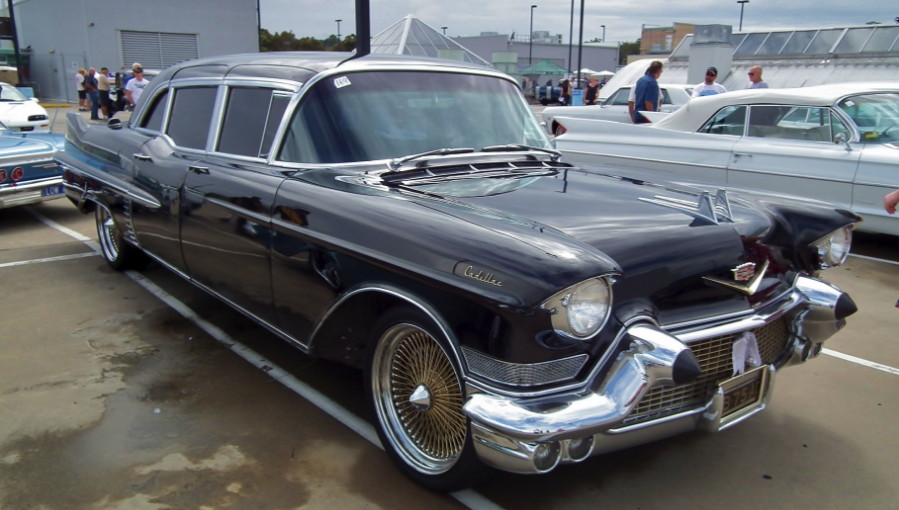This is a slightly updated article from 2016. I think it is a good one and worth your time to read. The Diamond-Water Paradox is posed early on to sophomore students in an economics course. The question is: why is water, which is required to maintain human life, of much lower value to people than diamonds are? Why are we usually willing to pay very little money for one glass of water and a great deal of money for one diamond, which is not required to maintain human life?

I think the concept of value is still one of the most misunderstood aspects of business. If business students learned it, they often forget it quickly. If someone never learned it in the classroom, they learned about value by trial and error and maybe still have some faulty notions of it. This is especially true in Business-to-Business settings where in today’s world value usually must be meticulously measured and demonstrated beforehand before a customer will buy your product over rivals’ products.
Many times we use the word value very loosely. On the demand side, are we referring to the value customers receive when they buy a good or service or on the supply side are we talking about “making money” and the financial value of making, offering and selling our products and services? Do things like water just have inherent value, regardless of the over-supply of those things? Or are we talking about investment value where we hope what we paid for today (say five shares of a stock) will be worth more five years from now?
Actually, all of these aspects of value are related. I will not review the technical and purely economic discussion of value. The readers can Google on it and read in more detail if they like. What I will focus more on is my understanding of ‘value’ and how it has informed my practice of competitive strategy for and in firms for thirty-five years.
I think the key question is why do customers want to, not have to buy the goods and services they buy? Usually, in a free market, no one makes anyone buy something if they do not want to. And what price are they willing to pay? A person dying in the desert of thirst is one thing. He or she has to buy water to survive at whatever price the seller wants, if the buyer has the money and the seller is not altruistic and just gives it away. We have to buy food to live. The value or price of necessity goods like food is caused in part by the cost to produce them. The value or price of luxury goods, like expensive cars and watches, is most times a very subjective judgment by the buyer. But the discussion about value is a relative concept. Value is demonstrated or perceived when compared to other things.

This was the beauty of Southwest Airlines first pricing of its flights from Dallas to Austin, Texas in the late 1970s. They priced a seat to be less than the total cost of driving one’s car to Austin and certainly less than a taxi to take one there. Say the total cost to drive my self to Austin was $59 then. If Southwest priced that one-way ticket for $39, then $20 of value was created for me. Thus value was created in this comparison. I would have to pay for parking at Love Field, but this was factored into Southwest’s price of $39. They could have charged $49 for the seat, but they subtracted the cost to park as a value to me. They also could have charged $69 but they calculated the cost of a taxi to take me to my destination when I landed in Austin. They subtracted this from their price, further adding value for me. This assumes I need to or have to or want to get to Austin. If I did, I had a choice for value. I could drive my car for over four hours with wear and tear on it or drive to the airport, park, fly to Austin in thirty minutes and take a taxi to where I am going in Austin when I land. And how did Southwest “make money” on such a low fare per seat? That is a part of their genius and for another discussion.
If the price of food gets too high for us, we can grow it ourselves. But very quickly we calculate that making our own milk or meat would be way too much of a hassle and too costly for us and so we gladly pay for our milk or meat in a supermarket. Our budget determines which brands of milk and meat we will buy. Again notice it is the relative comparison to other ways to get the product or service that determines what we are willing to pay and the value to each of us.
Let me give an example from my field of consulting. Let’s say a business needs and wants to improve its strategy making process and resulting strategic plan to be more competitive. If I can do this for a total cost that is less than the firm can do it itself, and quicker with no mistakes, I am in the running to get that project. Say a firm wants to do this but does not know how. Say it would take $10,000 for this firm to send some of its people to courses to learn the field of strategy. Now factor in the time away from their current day jobs as a cost in lost productivity, and also factor in trial and error of making mistakes at first tries. If I can fulfill this need for $5000 and do it more quickly than the firm can do it and with no mistake, I have created $5000 of value for that firm ($10,000 minus $5000).

This relative comparison of two or more things sets the value to me of buying a good or a service. This works in business-to-business (B2B) settings as well as business-to-end consumer settings (B2C). B2C buying situations include buying basic items like food and luxury items. Let me give another personal example. At the time of this writing, I am considering buying a “classic car” – a 1948 Cadillac Fleetwood Limousine. The car is in fair condition and does not currently run. The seller is asking $12,000 for the car. Is this of value to me and thus a “good deal”? How should I analyze this? I will spend $1350 getting the car delivered from Massachusetts to where I live. I will spend another $5000 just getting the car drivable and ready to use. My total cost so far is $18,350. I will have annual maintenance costs of $750. Let’s say I plan to keep the car into perpetuity and not resell it. The present value of the annual maintenance costs into perpetuity is $10,714. So my total cost today is now $29,064. There are two ways then for me to assess the value of buying the car. If my total costs actually are to be $20,000 because I am a good bargainer I have created $9,064 of value for me. The real value to me is my satisfaction in tooling around town in this classic car. Another way to look at this is what is the highest and best use of the car for me? Say I want to create a little side business of offering the limousine to take people to prom dances, weddings and the like. Say I can charge $200 per trip, as the car will hold up to six people in comfort. This is three couples for $67 per couple. Is this worth it for them? Let’s say the adult couples all legally consume alcohol. I take away the chance they would get arrested for a DUI, a huge value. If each couple drove their own cars, they would spend about $15 per couple, the cost of fuel and parking. But what is the value of not getting arrested? If they have this need to get to the wedding this is probably of value to them. Back to me. Let’s say I could run three trips per week. Total revenue would be three trips per week times four weeks per month times twelve months per year for a total of 144 trips per year. At $200 per trip this would be $28,800 in revenue. I would subtract the cost of gasoline to get to gross profit but not the annual maintenance as I have included it in the initial cost to me. This is certainly less than the $29,064 total cost to me thus of negative value. So I should not buy the car.
Why would I buy the car anyway and not even start a business using it? It is because the value of the satisfaction of driving the car added up over the years is greater than the total cost of $29,064. I can compare this to the cost of my most satisfying hobby – golf. I spend about $6000 a year playing golf and enjoy the sport very much. So I would need to have a lot of satisfaction in owning and driving this car. This appears to be not a good deal after all. But I really want the car!
The concept of value and what is of value to each one of us is always a comparison of two or more things. It can be a slippery concept and no wonder it is often difficult to apply.
What value is your business creating for your customers? Can you assess your value created and put a number on it? Creating real value is the only way your firm will stay in business.
This article is part of a series on what causes a firm’s value to increase
Dr. William Bigler is the founder and CEO of Bill Bigler Associates, He is the former MBA Program Director at Louisiana State University at Shreveport before retiring from that post in June 2016. He was the President of the Board of the Association for Strategic Planning in 2012 and served on the Board of Advisors for Nitro Security Inc. from 2003-2005. He has worked in the strategy departments of PricewaterhouseCoopers, the Hay Group, Ernst & Young and the Thomas Group. He can be reached at bill@billbigler.com or www.billbigler.com.
